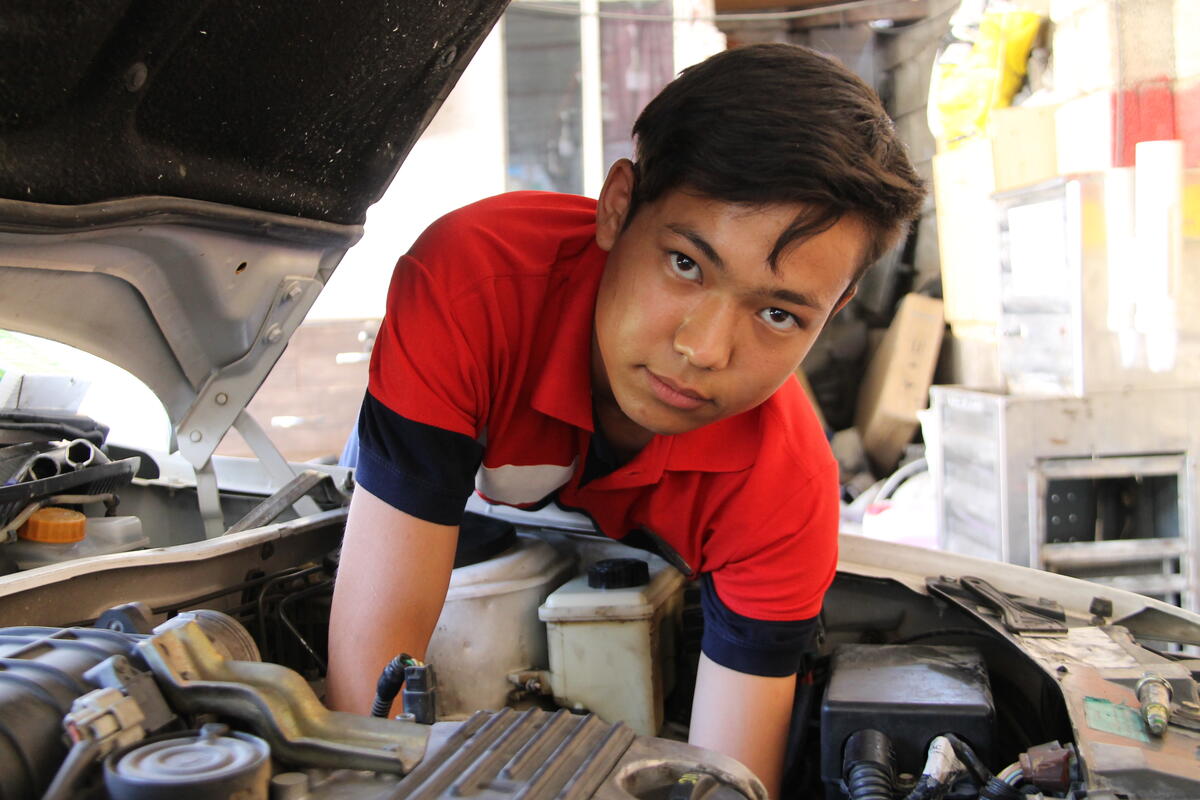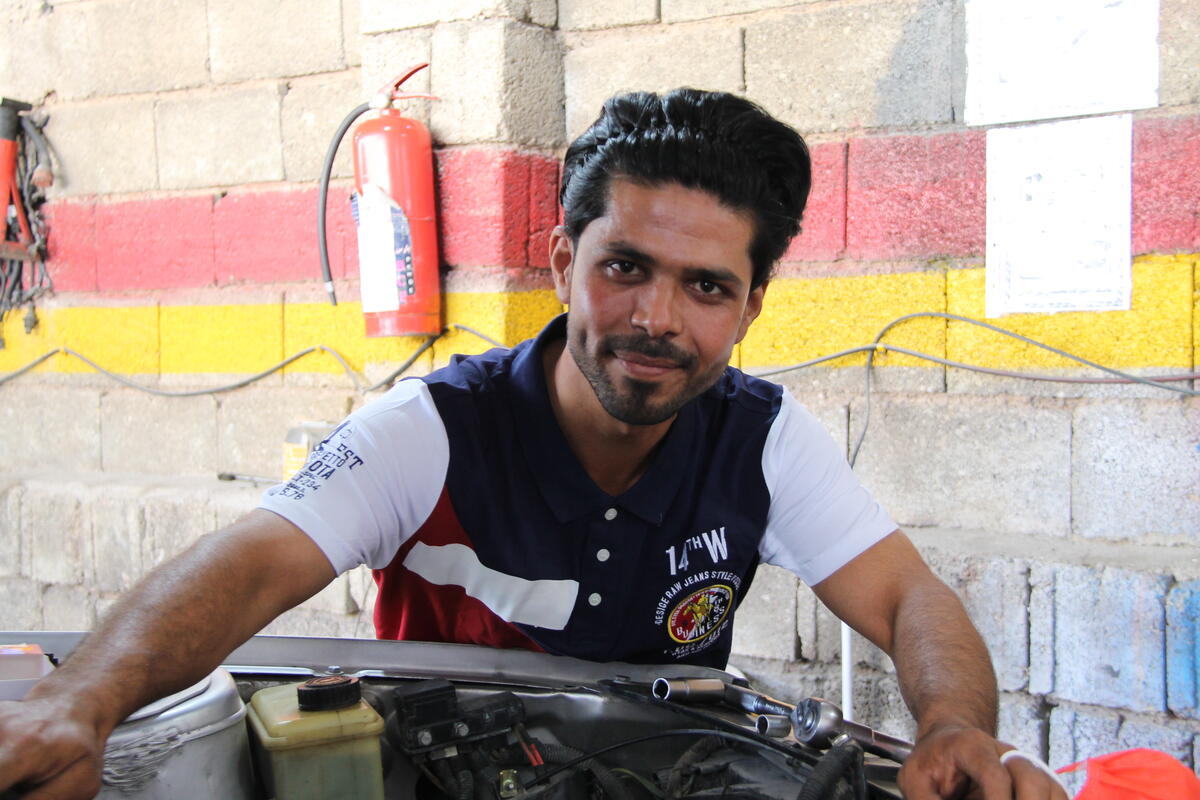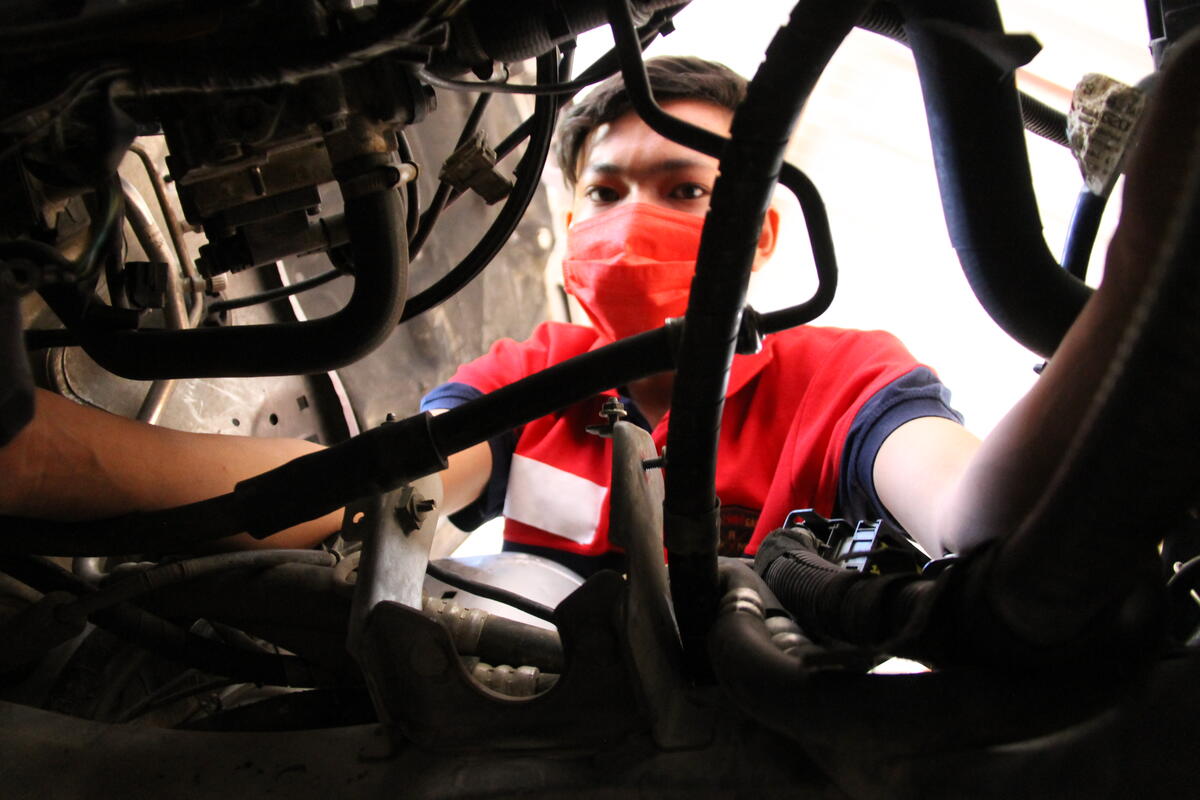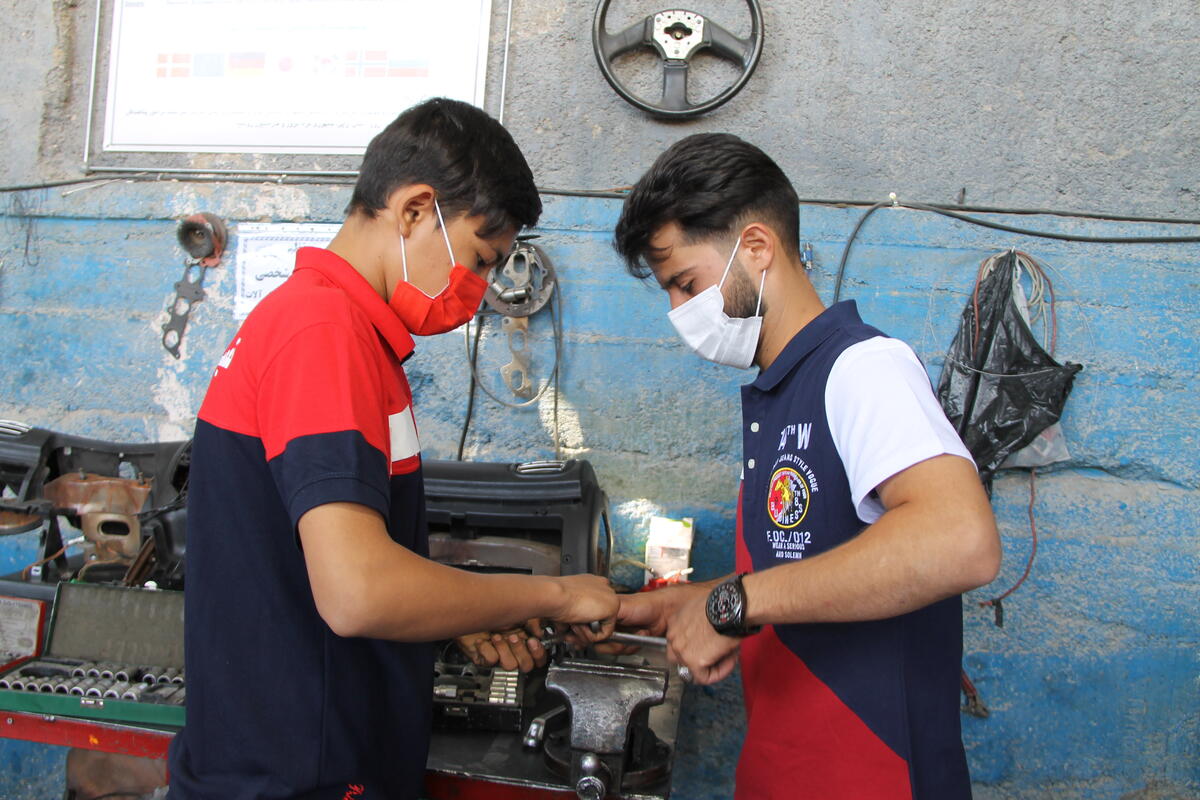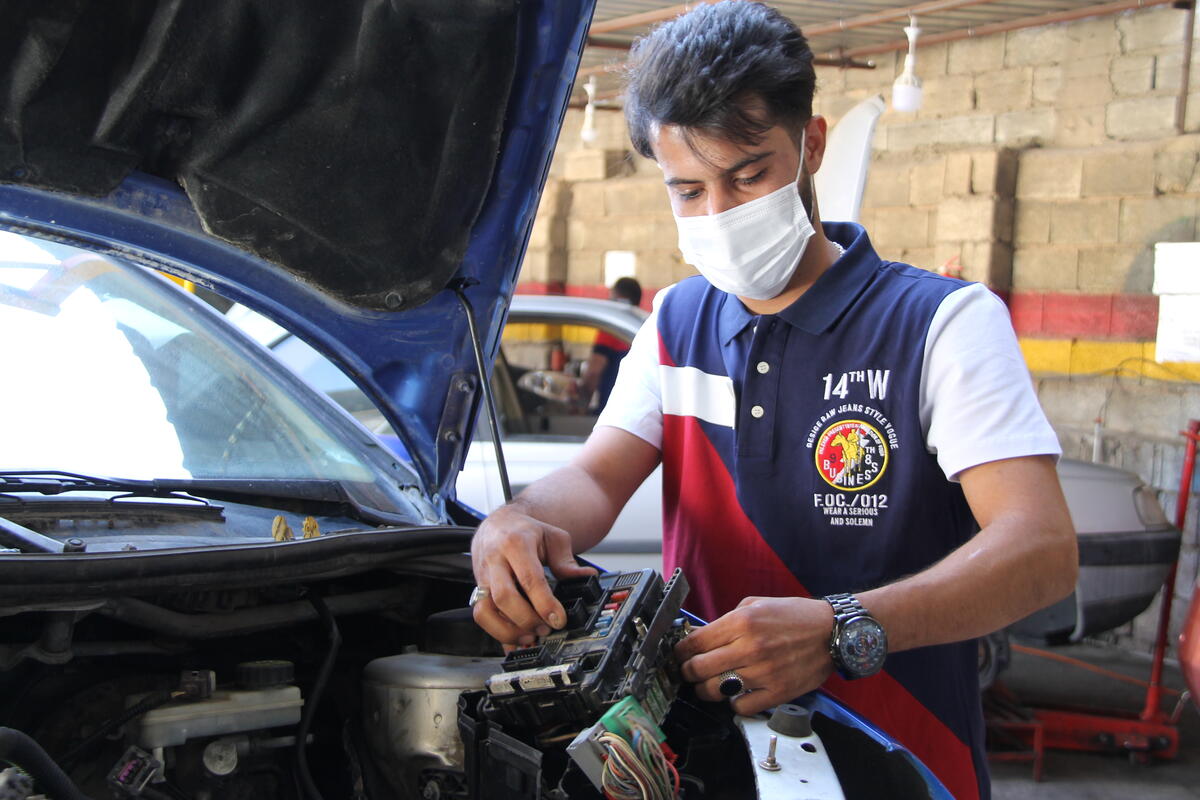Apprentices become partners as Afghan refugee and Iranian team up

Apprentices become partners as Afghan refugee and Iranian team up
Spare parts clutter every corner of the auto-repair shop in the bustling centre of Shiraz, in the Islamic Republic of Iran’s southern Fars province, where Abbas Balkhi leans under the hood of a car making careful adjustments until the rev of the engine sounds just right.
Abbas is an Afghan refugee born in Iran who has been passionate about cars since his childhood. “When walking in the street with my father, I would stop by every car and try to peek under them to see the engine,” said the 31-year-old mechanical whiz.
His father Mohsen, 60, also recalls that his son would disassemble every electronic device he could get his hands on, only to put them back together perfectly afterwards. “We used to call him ‘wrench-boy’ – his hands were like tools; they could fix anything.”
Abbas dreamt of becoming a qualified engineer, but at 12 had to drop out of school to work in his uncle’s tailoring workshop to help his family make ends meet. He was making a meagre living and, as his father’s health worsened, he knew he would not be able to support his family’s growing needs this way.
It was only when he attended courses at Iran’s Technical and Vocational Training Organization, with the support of UNHCR, the UN Refugee Agency, that he reconnected with his passion for mechanics and found a way to make a decent living.
Abbas was so talented that he soon earned an apprenticeship in one of Iran’s largest automobile companies, where he worked for two years, gaining invaluable skills in the real world of business. This is where he met Danial Hosseini, a 25-year-old Iranian who was completing an internship there.
“We used to joke about who was more skilled,” said Danial. “Then we decided instead of competing, we should join our strengths.” They cemented their friendship – and their entrepreneurial partnership – by eventually opening and running the auto-repair shop together.
“Refugees have the talent, passion and skills to succeed and help their host community along the way,” said Indrika Ratwatte, UNHCR’s Director of the Regional Bureau for Asia and the Pacific, who met Abbas and Danial on a recent week-long visit to Iran. “The Government of Iran is and has been doing all it can to assist refugees, but support from the international community needs to be strengthened and amplified to allow refugees to thrive, not just survive.”
As the reputation of Abbas and Danial as trusted young mechanics in Shiraz grew, so did their business. Today, with the support of UNHCR, the auto-repair shop has expanded and employs 11 mechanics, of whom seven are refugees.
"It is important for me to train younger refugees."
Even through the COVID-19 pandemic, they have managed to keep the workshop open by helping customers at the gate and disinfecting every surface before they get to work – enabling the employees to keep their income through the tough economic downturn currently impacting Iran.
Soleiman, 18 years old, is one of the Afghan refugees learning the ropes with Abbas and Danial. “I am happy that I can support my family with this job… I hope that someday I can open my own shop and become the best mechanic in the city.”
“It is important for me to train younger refugees and give them the skills and knowledge that I have acquired, so that they too can become independent and self-reliant,” said Abbas.
Iran hosts almost one million Afghan refugees, as well as some 2 million undocumented Afghans and some 600,000 Afghan passport-holders. Despite existing challenges, the Government of Iran has shown great solidarity with refugees by giving them access to basic services, including in education and health.
Refugees also have the right to work in Iran but, as in many parts of the world, they often remain one of the most vulnerable segments of society. In Iran, UNHCR supports vocational training and livelihoods activities for refugees, enabling them to build their confidence and acquire marketable skills. This in turn helps them better support their families in the host country and, when the conditions become conducive and they wish to return, in their home country.
"We are lucky to have found safety in Iran."
Mohsen, whose family fled Sar-e-Pol in Afghanistan 38 years ago, is thankful for the opportunities Iran has given him, but worries for the future of his country at this historic and critical juncture. “My heart breaks for all the children who lost their parents during the many years of war,” he said. “We are lucky to have found safety in Iran – but what will happen to Afghans who may need to flee in future?”
Afghanistan today has a population of nearly 35 million people. Millions are displaced within the country and millions more sought safety across borders in the past, with the majority of current refugees living in Iran and Pakistan.
UNHCR is also calling on the international community to increase support for Iran, which for over 40 years has shouldered the responsibility of hosting Afghan refugees on its territory. So far, UNHCR in Iran has only received 8 per cent of the USD 97.9 million needed to support refugee programmes.


